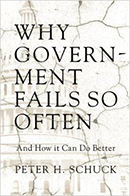So says Coyote, and I agree with him (earlier here).
…companies will quickly restructure their work processes to make sure no one works overtime. And since their new hires are working just a straight 40 hours (with mandatory unpaid lunch break time in CA), they will likely pay less. If I am paying $40,000 a year for someone who will work extra hours for me, I am not going to pay that amount to someone just punching a time clock. And the whole psychological relationship is changed – a salaried person is someone on the management team. A person punching a timeclock may not be treated the same way. …
…for those who think schools assign too much homework, this could well be the end of homework. The most dangerous possible thing with hourly workers is to give them the ability to assign themselves unlimited overtime. Teachers could do this at home with grading papers. If I were a school, I would ban teachers from doing any grading or schoolwork prep at home — after all, it’s hourly and probably overtime and they could work unlimited hours at home and how would you get it under control? The only way to manage it would be to ban it entirely.
He marches through some of the implications, all bad, for employee travel (why allow it except for the direst company needs if every hour on the road is going to be paid at time and a half?), ObamaCare incentives, and the erosion of a minimum pay guarantee for those whose salary now provides one. (On the homework issue, incidentally, teachers are exempt under current FLSA rules; grading papers at home would only be dangerous assuming a change in those rules.)
Filed under: wage and hour suits

